Materials & Care
Each piece that is produced in the studio is made with clay from the nearby Westerwald region, the largest connected clay deposits in Europe, with a rich variety of clays and broad spectrum of earthy tones.
All objects from the collection are high–fired stoneware (or porcelain) made by experimenting with different techniques, from wheel–throwing to slipcasting and handbuilding. Casted pieces are moulded off an original form that is first built, thrown or turned from plaster. The whole process has many different steps and it's beautiful to be able to work on everything from the beginning to the finished product, even though it can involve a few frustrating moments. All pieces are first drying for at least 7–10 days before being bisque–fired at 900 °C. This takes about 12 hours (and another 12 until the kiln can be opened). Each piece is then washed, sanded and smoothed, glazed and then once again fired at 1220°C. The second firing takes about 16 hours, another cooling down round until the pieces are finally ready to be taken out. That's why it takes at least 3 weeks to finish one product.
All pieces are made with care, with natural materials that are made to last. Since all products are crafted by hand, irregularities may occur on the surface. All pieces are waterproof, acid–resistant, impermeable and dishwasher–safe. A careful treatment and washing them by hand is still recommended, as they will last much longer. Use a soft cloth to avoid scratching, this will prolong the life of the pieces. The glazes used for plates and cups are all food–safe.
All clay bodies are being reused and recycled / reclaimed.
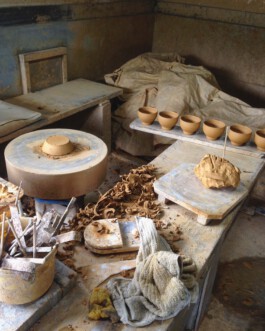
Clay
The craft of making ceramics involves the alchemical process of turning soft organic matter into a hard, long–lasting material.
When clay (greenware, fragile and unfired pottery) is fired to earthenware, water is removed, causing the particles to irreversibly adhere to each other and bond. Kaolin is transformed into Metakaolin and remains in its rigid shape when moistened.
Clay minerals are a common component of sedimentary, silicate–bearing rocks. In the Westerwald region volcanoes shaped the landscape over 30 million years ago. The lava from the eruptions solidified to basalt and locked the clay for millions of years until global warming in the Tertiary created a deep kaolinization of the subsoil. Particles of weathering feldspathic rocks deposited in lakes and deltas forming deposits where clays are still mined from today.
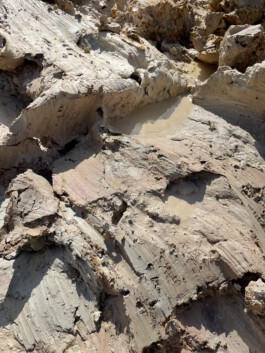
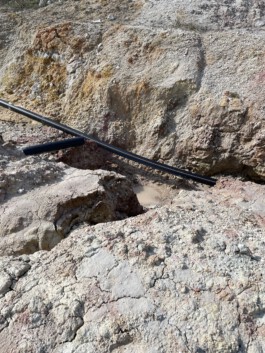
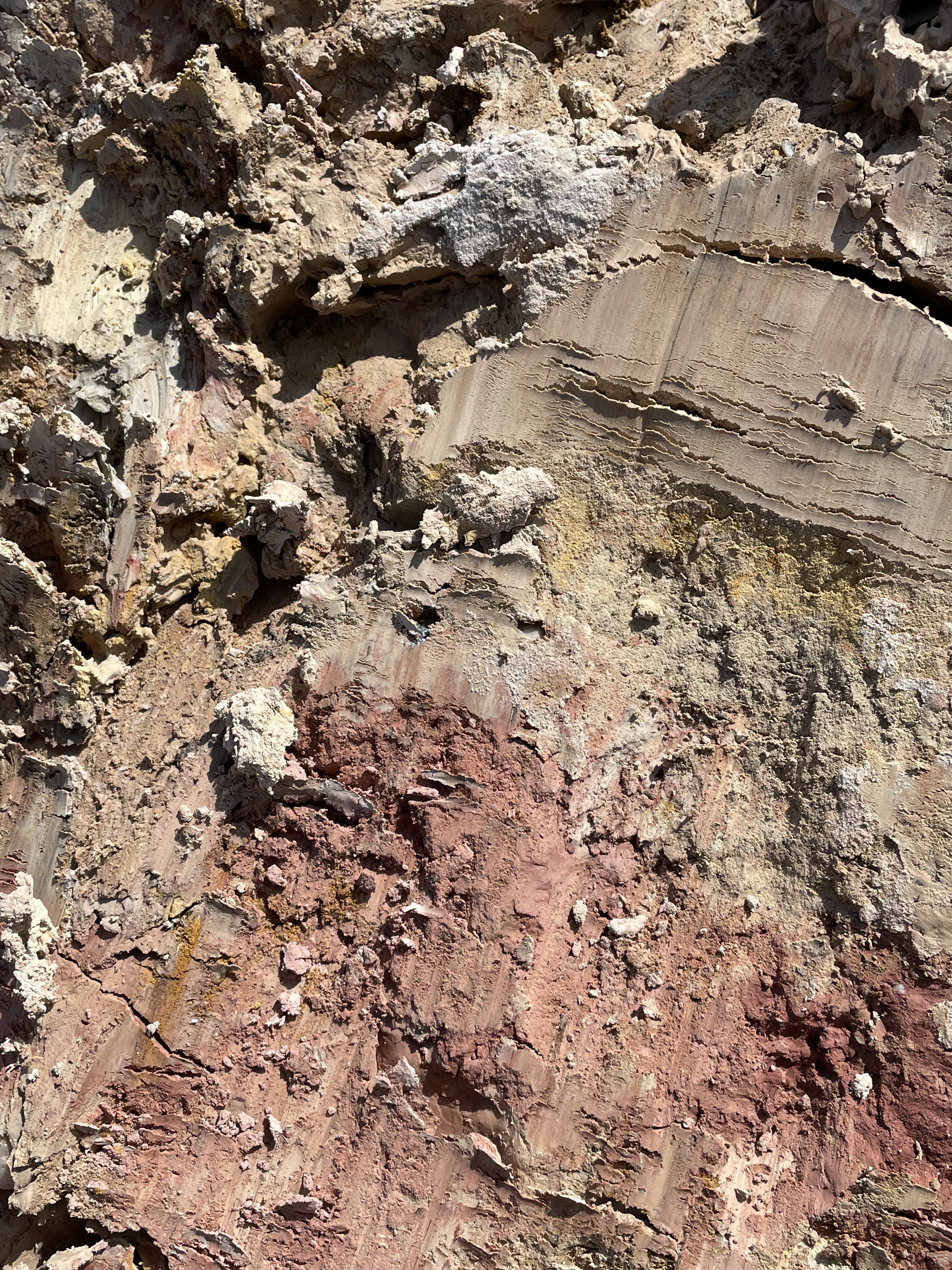
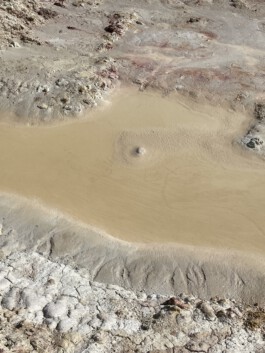
The different stages of clay
1 → Dry clay is made up of fine particles, formed millions of years ago from volcanic material (ash). The most common one is ball clay (containing kaolin, quartz, titanium, mica, iron, and other minerals). Recycled clay is also a form of dry clay. You can add water and depending on what kind of clay you want either prepare and wedge it for the wheel or handbuilding or add more water to get clay slip for casting.
2 → Clay slip you get when adding water to the dry clay. It can serve as a glue that holds parts together when for example attaching handles or other parts when handbuilding. Clay slip with bit of deflocculant can also be used for plaster moulds for casting pieces.
3 → The plastic stage, when the clay is moist, is for ideal for wheel throwing or handbuilding.
4 → Leather hard clay, after having dried for a bit, is strong enough for trimming the bases, and/or adding handles.
5 → Bone dry clay (also called greenware), you get after a minimum drying time of 7 days (depending on the climate) when it’s dry enough to be bisque fired. Final finishes are done with a sponge. This is the most fragile state.
6 → Bisqueware is the stage after the first firing, the chemical and physical nature of the clay has been irreversibly changed, the pieces are now hardened but still porous. Water is absorbed into the surface, making the glaze stick to the piece. Now is the time for the glaze firing.
7 → Glaze(d) ware, the final stage. The piece is now ready to be used and kept for ages.
a pinch of salt
c/o Tamara Pešić
Ludwigstraße 197
63067 Offenbach
Germany
Open on Appointment.
Pick up times:
Thursdays, 16:00–19:00
Saturdays, 13:00–16:00
© 2022
a pinch of salt
c/o Tamara Pešić
Ludwigstraße 197
63067 Offenbach
Germany
Open on Appointment.
Pick up times:
Thursdays, 16:00–19:00
Saturdays, 13:00–16:00
© Copyright 2022